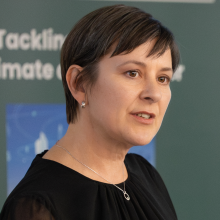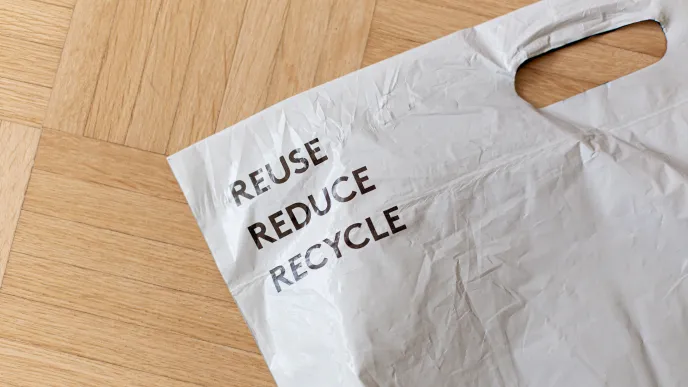Greenwashing means making activity appear more sustainable than it actually is. On the other hand, corporate social responsibility engagement may decrease sales revenue growth and brand value growth in the long run. So, how should enterprises communicate about their sustainability actions?
Professor John Cadogan, University of Leicester, UK:
“In my experience in working with the retail fashion industry, even their sustainability managers don’t always know how to communicate about sustainability. One general problem is that the sustainability team or manager doesn’t know what the marketing team is doing and vice versa. In other words, the firms need good internal communication. Although the sustainability people usually know better than the marketing team what’s going on in the firm with respect to green initiatives, the challenge is getting that information in an understandable form out to the marketers or communications people.
I’d say you have also got to be savvy. Don't oversell the product and exaggerate too much. Hype is common in marketing, but it can make people skeptical of your message, which is undesirable.
You need to use the right green words too. I once did a podcast with the director of sustainability of a global fast fashion company. It was great, but it was also hard work trying to get the sustainability expert to talk about issues in terms that marketers could use or that consumers could relate to.
After we finished recording the pod, I talked about it with a more senior manager who had listened to it. She was very marketing-savvy, and asked if I could interview her on an additional pod. She really understood how to make the initiatives the sustainability manager had discussed clearly relevant for consumers. She did a great job clarifying the firm’s future path, identifying emerging opportunities, and was quite open about the challenges facing the firm in the coming years. It’s important to know how to communicate the green strategy.
Importantly, as Jim Skea, the new chairman of the UN’s IPCC (Intergovernmental Panel on Climate Change) has argued, it’s important not to feed into a climate despair narrative. His point is that if we panic consumers, we risk paralysing them into inaction, and they become less likely to do what is needed to get a handle on climate change. One could add that it may also make them skeptical on the climate front. Be sensible and do what you can.”
John Cadogan is a professor of marketing, editor-in-chief of the International Marketing Review, and LUT Business School’s first visiting professor, appointed in 2011.


Professor of Practice, Jamie Hyneman, USA:
“I recently read this very interesting article entitled Exploring Tensions in Urban Energy Communities by LUT’s Assistant Professor Eeva-Lotta Apajalahti & al. Apajalahti and her colleagues wrote about how you need the right momentum to boost the implementation of novel technologies and urban energy transitions. Incremental changes are needed to turn the direction.
I think enterprises should be transparent about what they do. You should communicate about your challenges too – what needs to be done differently – and own the criticism. It’s a long and argumentative road, and it’s not going to be easy. Unfortunately, there’s no magic bullet to make everything right.
My generation and previous ones have made this environmental mess we’re in, and it’s the young people who have to do the heavy lifting and fix this. Still, there’s no point in walking around with red flags. Use studies and careful strategies instead, and appeal to the basic wishes such as having children. People want their offspring to live a happy life.
Instead of destroying the lives of future generations, could we start taking little sustainable steps every day?
So, my advice is this: Ask questions rather than make statements.”
Jamie Hyneman is an inventor and the owner of the special effects workshop M5 Industries, a former tv-star, and LUT’s honorary doctor since 2017 and professor of practice since 2021.
Professor Jo Meehan, University of Liverpool Management School, UK:
“In today’s digital world, where information availability and sharing are prolific across multiple platforms, avoiding greenwashing – or perceived greenwashing – demands that enterprises pay close attention to language in their communications.
Language that is vague, ambiguous, or stops short of reporting real action can serve as signals of greenwashing. While enterprises understandably wish to highlight their achievements, solely showcasing successes paints an incomplete picture. Using a sports analogy, this is akin to a sports team only reporting the goals scored in a match without acknowledging goals conceded, leading to a distorted view of the final score.
Transparency is the antithesis of greenwashing. True transparency requires the disclosure of not just the achievements but also the challenges, setbacks, and, arguably, even failures encountered. Rather than being viewed as reputational risks, such candid disclosures provide credibility and demonstrate a genuine understanding of an enterprise’s environmental and social impacts.
Moreover, openly discussing complexities and hurdles presents an opportunity for constructive dialogue. Engaging with stakeholders – customers, suppliers, policymakers, regulators, and investors – about the broader systemic changes that are required can serve as a catalyst for innovation, collaboration, and collective action to drive meaningful progress.”
Jo Meehan is a professor of responsible procurement and the director of the Centre for Sustainable Business. She has been LUT Business School’s visiting professor since August 2023.






